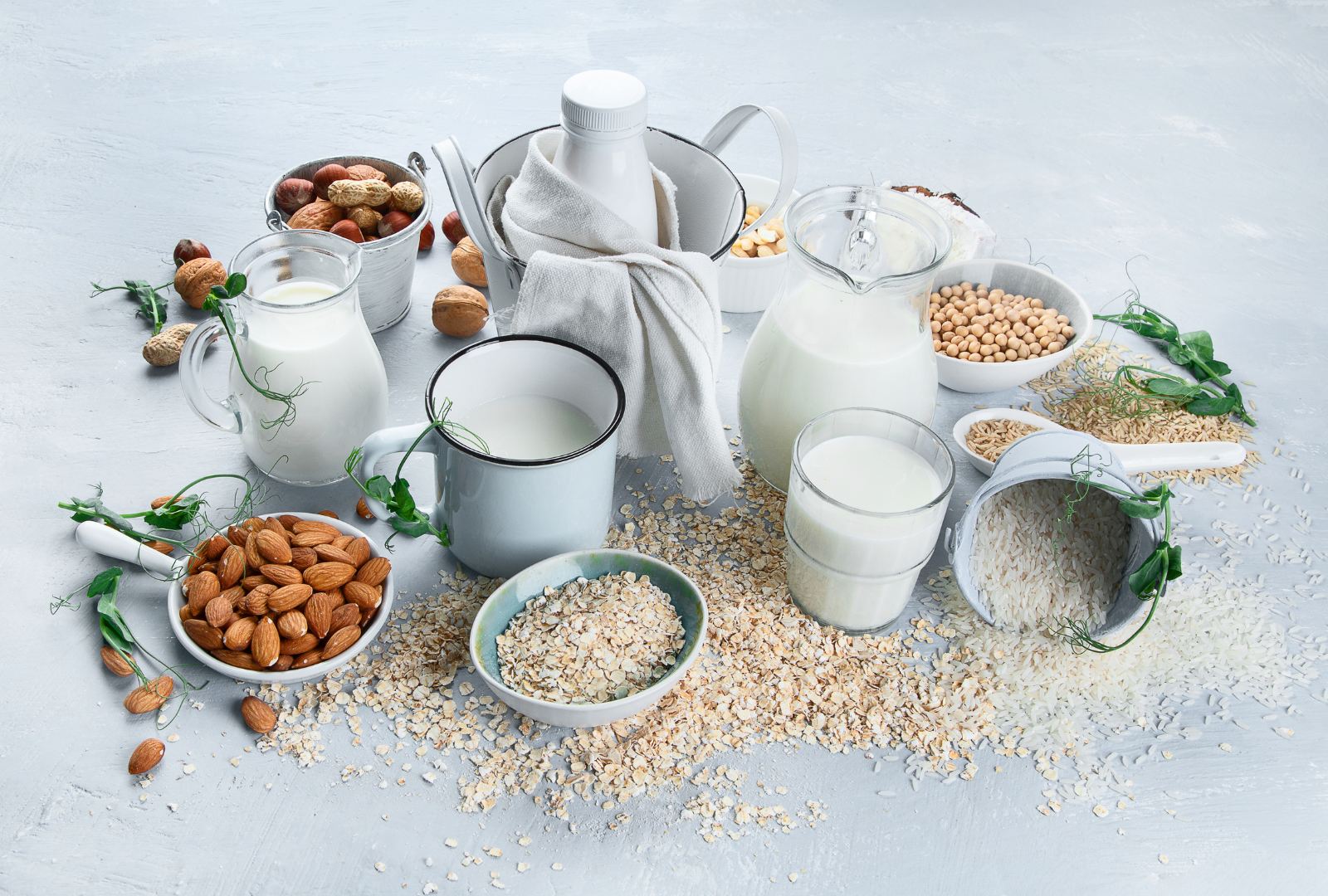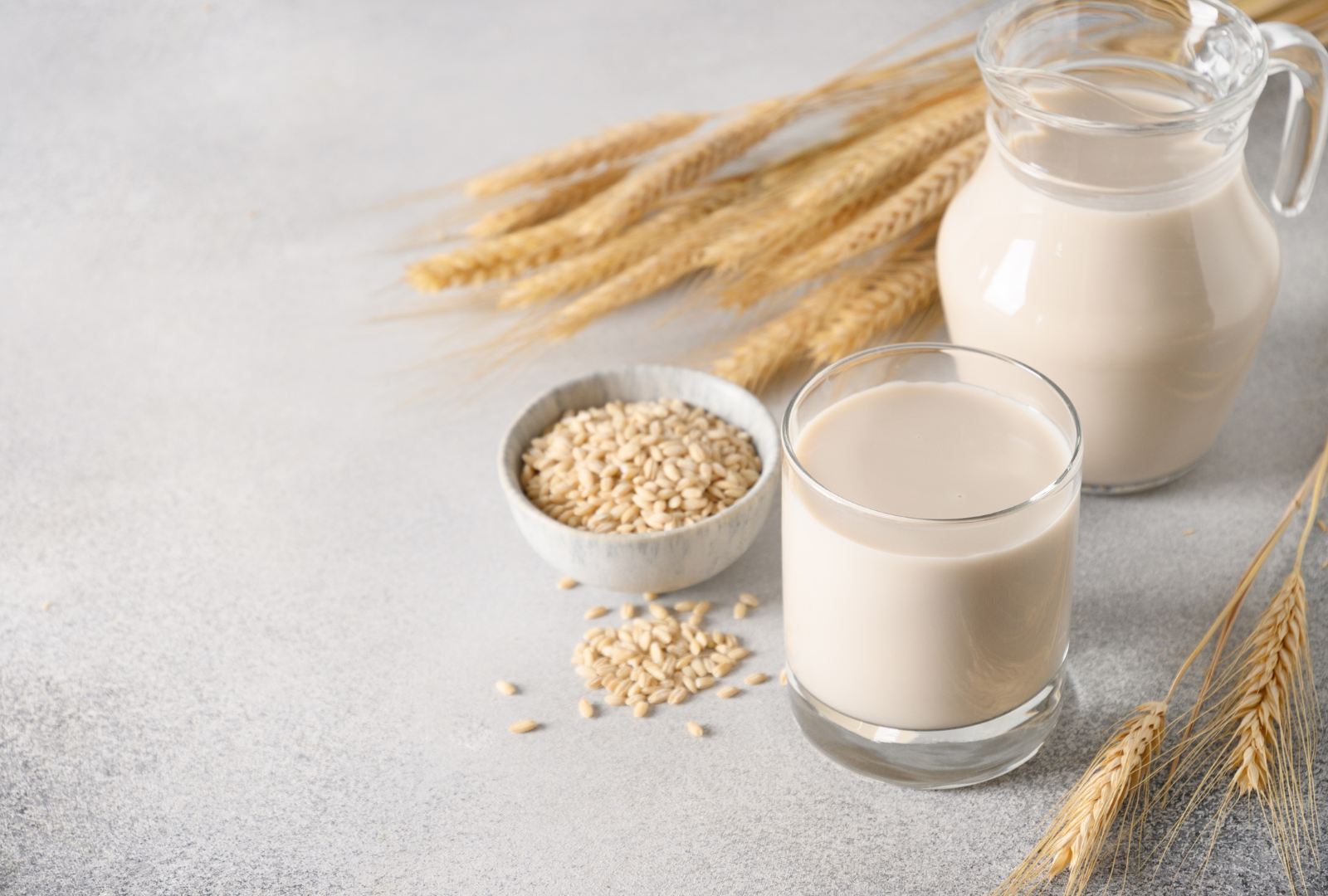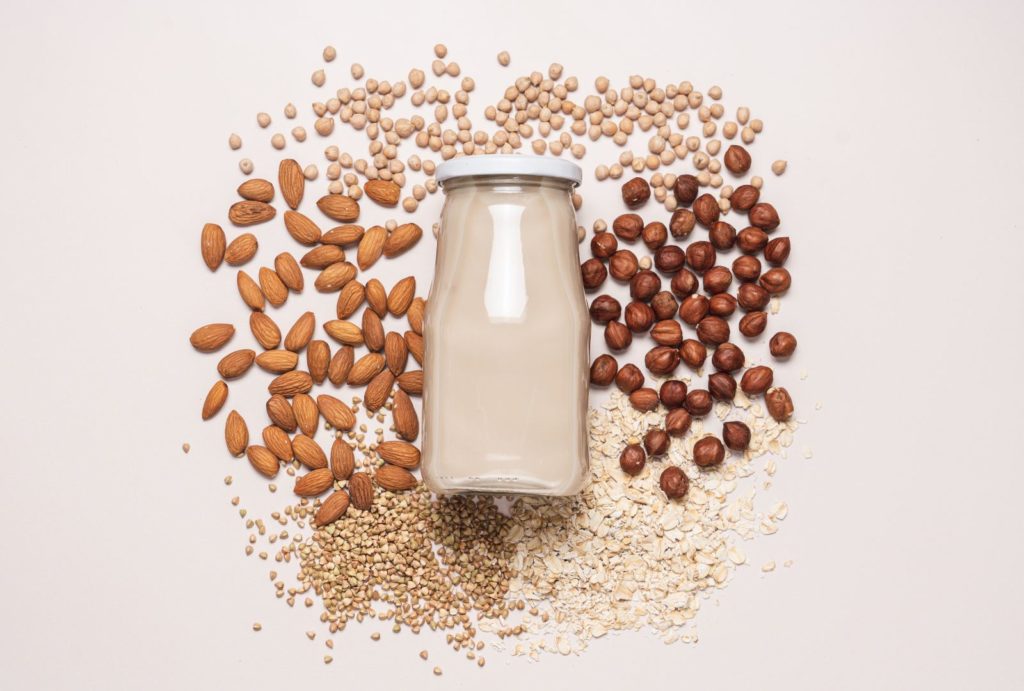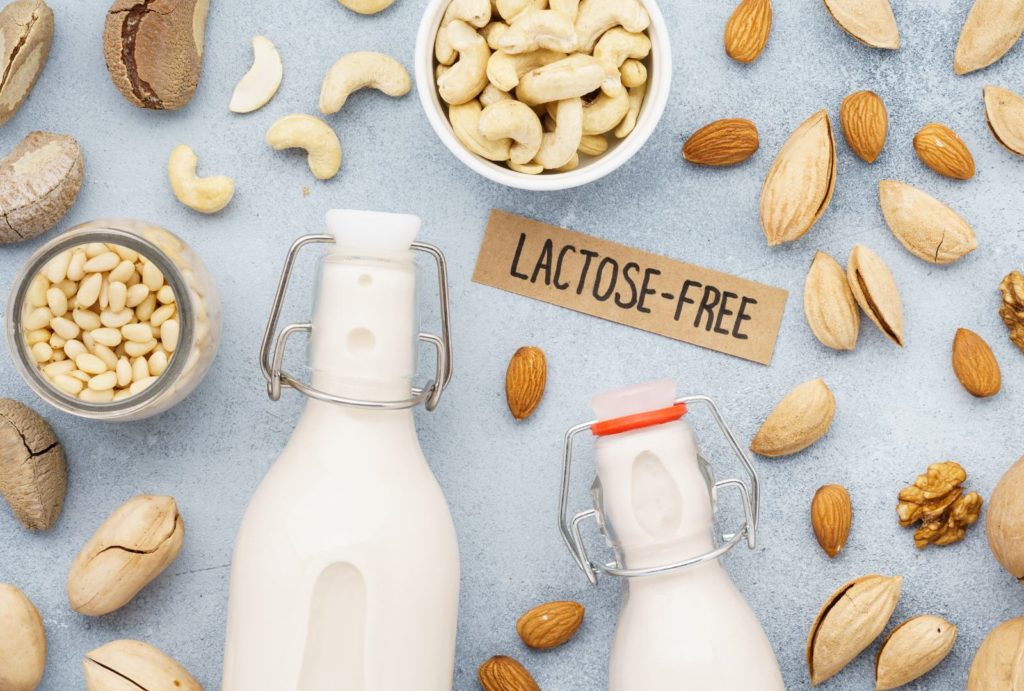Walk through any Swiss supermarket today—Coop, Migros, Manor—and you’ll notice a quiet revolution happening in the milk aisle. The classic cartons of dairy now share space with sleek, minimalist packaging of oat, almond, soy, rice, and coconut drinks. They’re trendy, yes—but they’re also tugging at something deeper in us: a growing desire to feel better, eat cleaner, and live more consciously.
With more people exploring the benefits of plant-based milk, many of my clients ask me:
“Are plant milks actually healthier?”
The answer, as always, depends on what you choose—and what your body needs.

What is the best plant-based milk for health?
Let me start with this: I love my morning oat milk matcha. It’s warm, creamy, and comforting. But I also know not all plant-based milks are created equal. Some are loaded with gums, oils, and sugar that quietly undo the very wellness they promise. Others? Beautifully clean, nourishing, and kind to your body and the planet.
So let’s break it down—not like a comparison chart—but like I would with a client, cup of tea in hand.
How healthy is oat milk for you?
This is the star of the show in Switzerland right now. Oat milk is everywhere—especially in barista blends that foam up like a dream. It’s gentle on the stomach, naturally sweet, and has a lower environmental footprint than almond or rice milk.
But here’s the catch: many brands add seed oils (sunflower, rapeseed), gums, and emulsifiers to get that “just like milk” texture. For sensitive guts, those extras can be inflammatory.
My tip: Look for oat milks with just oats, water, and maybe salt or vitamins. Avoid anything with added oil especially if you’re working on inflammation or bloating.

Is drinking almond milk good for you?
Almond milk is delicate, almost neutral in taste. It blends beautifully in smoothies or baking. But the commercial versions can be… underwhelming. A splash of almonds in a sea of water, often with thickeners and sweeteners added in.
And almonds are thirsty crops—so environmentally, they’re not the top choice. That said, homemade almond milk is a totally different experience. Creamy, subtle, and completely clean.
My tip: Soak almonds overnight and blend with filtered water. You’ll never go back to store-bought.
Is coconut milk healthy for you?
Coconut milk (not the canned cooking kind) has a naturally rich flavor that works well in golden milk lattes or baking. It’s lower in carbs, which is helpful if you’re managing blood sugar.
But again, some brands are more additives than coconut. And coconut farming has its own sustainability concerns.
My tip: Use it in small amounts for flavor, and rotate it with other plant milks.
How healthy is soy milk?
Before the oat milk boom, soy milk was the go-to for vegans and dairy-free diets. And for good reason—it’s high in protein, and often fortified with calcium, B12, and vitamin D. It’s also the most nutritionally similar to cow’s milk.
Some people feel uneasy about soy due to hormone concerns. The truth? Moderate amounts of non-GMO soy are perfectly safe, and even beneficial in many cases—especially for women in perimenopause or menopause.
My tip: Choose organic, unsweetened soy milk without added gums.
Is rice milk healthy?
Rice milk is naturally sweet, which makes it a favorite for kids or for those with allergies. But it’s also the most likely to spike blood sugar—it’s low in fat and protein and high in fast carbs.
Plus, rice crops can accumulate arsenic, so moderation matters.
My tip: Not your daily milk, but fine as an occasional treat or for recipes.
What’s Really Inside That Carton: Emulsifiers & Gut Health
Here’s something few people think about—until symptoms show up.
Many plant-based milks contain emulsifiers like gellan gum, lecithin, guar gum, or carrageenan. These are added to create that smooth, uniform texture and help the milk stay “milky” without separation. Sounds harmless, right?
But research is beginning to suggest that in sensitive individuals, these additives may interfere with the gut microbiome, promoting inflammation and even contributing to symptoms like bloating, cramps, or irregular digestion. If you already have a delicate digestive system—or are recovering from gut dysbiosis—this could be a hidden trigger.
My tip: Choose milks with short, simple ingredient lists. If you see a long paragraph on the back of the carton, it’s probably not the best for your gut.
What Does Each Milk Actually Offer?
Beyond the labels and lifestyle, there’s real nutritional variation between these milks. For example:
- Soy milk is the richest in protein and contains essential minerals like magnesium. It’s great for satiety and blood sugar balance.
- Oat milk contains beta-glucans, which can help support cholesterol levels—but it’s also higher in carbs.
- Pea milk (not always available in Switzerland) is also high in protein and offers iron and phosphorus.
- Almond milk is very low in calories, but also quite low in nutrients unless fortified.
- Rice milk is hypoallergenic but tends to be high in sugars and low in protein.
No one milk is perfect—but understanding your needs (protein? low-carb? gut-friendly?) helps you make the right call.

How to Make Your Own Plant-Based Milk
It’s Easier Than You Think !
Homemade Oat Milk
- 1 cup oats + 4 cups water
- Blend, strain, done. You can add cinnamon or a date if you like it sweet.
Homemade Almond Milk
- 1 cup soaked almonds + 4 cups water
- Blend well, strain, and store in the fridge for up to 4 days. Add vanilla, cinnamon, or turmeric for a twist.
Bonus tip: If you’re using it in coffee, add a pinch of salt and blend for an extra-smooth froth.
Is plant-based milk better for you than cow milk?
Yes… if you choose well. Plant-based milks can be part of a clean, nourishing routine. But they’re not all equal. In Switzerland, we’re lucky to have access to quality brands—Karma, Alnatura, Joya, and others often offer better options.
But the best? Your own. Homemade, or store-bought with intention.
Minimal ingredients. No hidden extras. Aligned with your health goals.
If you’re not sure what to choose or need help tailoring your diet for hormone health, gut repair, or perimenopause, I’m here. Let’s simplify your food choices, one small swap at a time.
FAQ: Plant-Based Milk
Plant-based milks are naturally lactose-free, often lower in calories than dairy, and suitable for people with dairy allergies or sensitivities. Many are fortified with calcium and vitamins, and some offer functional benefits like improved digestion or reduced inflammation.
While generally well tolerated, some people may experience bloating or digestive discomfort from gums, additives, or certain ingredients (like carrageenan or pea protein). Unsweetened and additive-free versions are typically easier on digestion.
It depends on your goals. Soy milk is richest in protein and closest to dairy nutritionally. Almond milk is low-calorie, while oat milk is often easier to digest and provides natural fiber. Always check labels for added sugars or preservatives.
Oat milk generally has the lowest environmental impact — it uses less water than almond milk and has a lower carbon footprint than dairy or soy. Choosing organic and locally produced options further reduces your footprint.
Fortified almond and soy milks often contain the most calcium — equal to or sometimes more than cow’s milk. Check the label to ensure it’s fortified with at least 30% of your daily calcium needs per serving.
Soy milk leads with about 7–9 grams of protein per cup — similar to cow’s milk. Pea milk is another high-protein option. Almond, oat, and rice milk have significantly less unless fortified or blended with protein sources.




